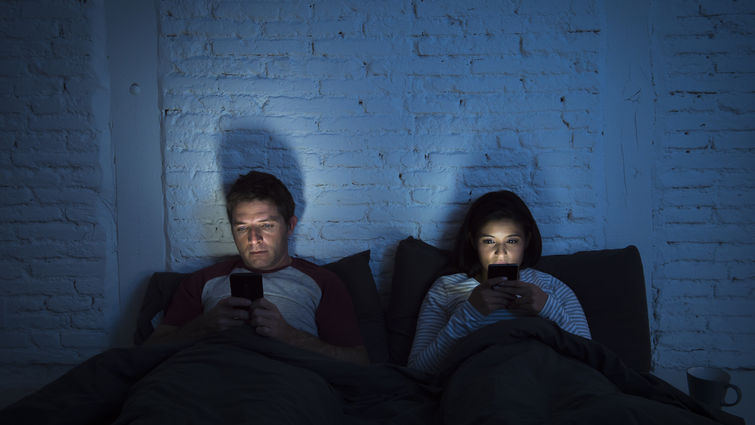
Getting a good night sleep is one of the most important elements in maintaining good health, but electronic devices can have adverse effects that can make it hard to fall asleep. According to the National Sleep Foundation, 95 percent of people use some type of computer, video game or cell phone within the hour before bed. Using certain electronic devices before bedtime can reduce your total amount of rapid eye movement (REM) sleep and leave you feeling drowsy in the morning.
Timothy P. Wong, DO, who specializes in sleep medicine, helps patients at Loma Linda University Health Sleep Disorder Center improve their quality of life. He believes that people can make a big difference in their lives with small changes to their nightly routine.
“The toll sleep deprivation can take on a person affects their productivity and both their physical and mental health,” Wong says. “Many of the avoidable sleep deterrents are related to electronic devices. Finding alternative ways to wind-down at night can make a huge difference in the quality of sleep.”
Here are his tips to get the most out of your night:
Turn off the TV
While it’s good to let your mind relax, prolonged exposure to the blue-light that televisions and similar electronics emit can have the opposite effect, keeping you awake. “These lights can suppress the production of melatonin — a sleep-promoting hormone — leading to insomnia and fatigue the following morning,” says Wong.
Instead of turning on the television, try reading a book or writing in a journal in the hour before you go to sleep. These activities can relax your mind and help your body unwind.
Ditch the phone
Wong encourages being off your phone for about an hour prior to bedtime. Using your phone to call someone, or to listen to relaxing music can benefit you, but using it to answer emails, play stimulating games or check social media creates the same issue as watching television. “Melatonin gives us a signal letting us know it’s time for bed,” Wong says. “When we suppress this signal, we make it a challenge for our body to get sleepy.”
Talking to your spouse before bed instead of being on your phone can help strengthen your relationship, and promote better, deeper sleep.
Close the computer
It’s easy to become wrapped up in what needs to be done in the days ahead and spend the time before you sleep answering a few more emails or finishing a project for work. However, this could be affecting aspects of your health you don’t know about. A phenomenon known as a stimulus control begins when we spend our time in bed doing work instead of sleeping, causing individuals to start associating the bed with activities other than sleep.
“If you’re in bed trying to answer that last email, the brain starts to subconsciously associate being awake with being in bed,” Wong says. “It’s become like your desk or your workplace. Paradoxically, many who experience this can fall asleep easier on the couch, but this is because they associate the bed with activities other than sleep.”
Game over
Video games, computer games and other over-stimulating activities are likely to disturb our night’s rest if played too close to bedtime.
Wong recommends switching off the game a minimum of one hour before bed. “It may be difficult to shut down the devices, but it’s a big step in getting into a healthy habit,” he says.
Rest-promoting activities such as taking a warm bath, doing gentle stretching or going through a deep-breathing mediation routine calm the mind and the body. Better sleep can not only lead to a higher energy level but can help avoid problems caused by lack of sleep — such as obesity or mental health issues.
If you are one of the approximately 40 million Americans who suffer from a sleep disorder, the Sleep Disorders Center at Loma Linda University Medical Center can help. Visit our appointment page to set up an appointment with a primary care physician. You can also schedule an appointment online, through MyChart, or by calling 909-558-6600. To directly call the Sleep Disorders Center, call 909-558-6344.
